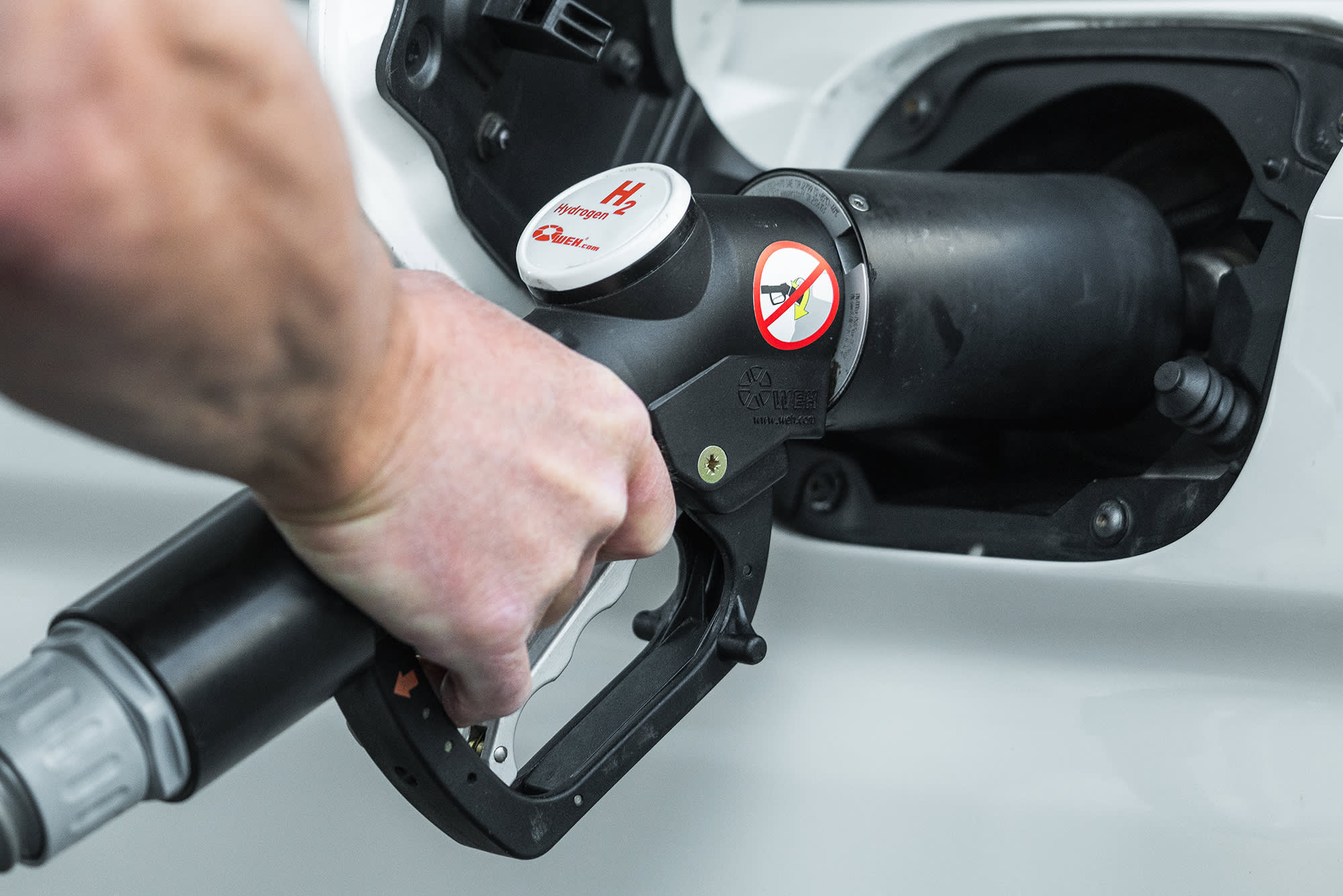
Nikola Motor Company Hydrogen fuel
Source: Nikola Motor Company
Shares of embattled electric truck manufacturer Nikola surged during early trading Thursday after the company announced a limited collaboration on hydrogen fueling stations with TravelCenters of America.
The plans include installing hydrogen fueling stations for heavy-duty trucks at two sites in California for TravelCenters of America, which is the largest publicly traded company that runs full-service travel centers in the U.S. The initial stations are “a first step for the parties to explore the mutual development of a nationwide network,” according to Nikola.
Shares of Nikola were up by as much as 7.7% in morning trading before leveling off to about $10.33 a share, up 1.5%. The stock, which once traded as high as $93.99, fell below $10 earlier in the week for the first time since the company went public through a reverse merger with a special purpose acquisition company, or SPAC, in June. Nikola, which was briefly valued higher than Ford Motor last year, now has a market value of less than $4 billion.
The collaboration is subject to negotiations and execution of a definitive deal agreed upon by both companies, according to a press release.
Hydrogen fuel-cell electric vehicles are viewed as a long-range solution for the trucking industry, which is attempting to move away from diesel-powered trucks. They operate much like battery-electric vehicles but are powered by electricity generated from hydrogen and oxygen instead of pure batteries.
FCEVs also are quicker to fuel than battery-electric vehicles, which the automotive and trucking industries also are exploring for shorter trips. But they also feature many of the same hurdles such as higher costs and charging/fueling infrastructure.
In a separate vote of confidence for hydrogen fuel cell technology, global auto supplier Bosch announced plans Thursday to invest 1 billion euros ($1.2 billion) in the technology through 2024. The German-based company believes the market for hydrogen in Europe will be worth almost 40 billion euros ($48.2 billion) by 2030 – with annual growth rates of 65%.




